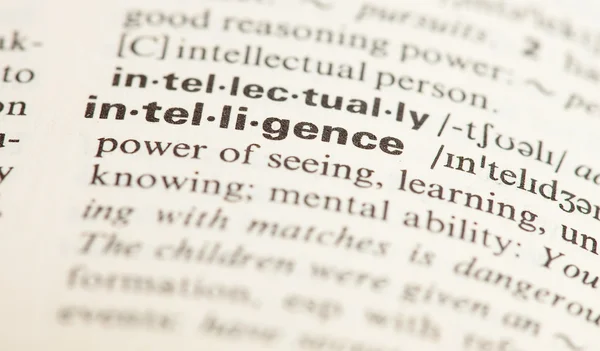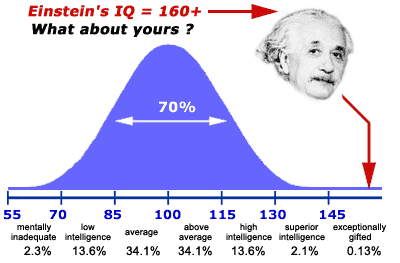

Have you ever encountered such things in your life? Probably yes. I remember when we were taking some review classes for the NCAE during our third year in high school, our teacher would give us mock tests for us to answer. Those include the verbal ability, reading comprehension, different academic questions and of course the boring, confusing and mind blowing visual-spatial tests. I would always question myself, why am I even answering questions not related to my academic career? What is the significance of those questions where in fact, they only contain images and stuff? I learned that it has something to do with one's intelligence.
The new-aged Jologs or Jejemons are often coined by rude, judgmental crowd as people with low IQ. I've read many articles and visited some forums and mostly, they were criticized because of the way they compose a message. But does the way they write or compose a message coveys their intelligence?

Back then, intelligence for me means knowing everything written on the book, EVERYTHING from top to the bottom of the cover. For me, an intelligent person is also formal in speech, writing and physical appearance. Some people consider me as an intelligent person but I never see myself as one. That brought questions in my mind on what does intelligence really mean. I was eager enough to find the answer, so I did a research and came across with an article entitled "Intelligence" by J. Lever-Duffy found in education.com. Based on the article, intelligence is a factor affecting learning. Included on this article is Howard Gardner's Theory of Multiple Intelligence. Which are:
- Linguistic intelligence (verbal skills and talents related to sound, meanings, and rhythms)
- Logical-mathematical intelligence (conceptual and logical thinking skills)
- Musical intelligence (talents and abilities related to sound, rhythm, and pitch)
- Spatial intelligence (skill in thinking in pictures and visioning abstractly)
- Bodily-kinesthetic intelligence (skill in 'controlling body movements)
- Interpersonal intelligence (responsiveness to others)
- Intrapersonal intelligence (high degree of self-awareness and insight)
- Naturalist intelligence (skills in recognizing, categorizing, and interacting with the natural world)
- Existential intelligence (ability to consider and deal with questions of human existence)

According to this theory, one's intelligence is a mixture of these nine. One may have all but still possess the dominating ones.
And it is possible to calculate one's intelligence using an Intelligence Quotient (IQ) Test though not all of these nine can be measured.

Another article "Intelligence: The Measurement of Cognitive Capabilities" by Angela Oswalt, MSW, edited by Mark Dombeck, Ph.D in the site Seven Counties, Inc., supported the latter article. This article also provided a brief history of Intelligence Quotient (IQ) Test. It was first conducted by Alfred Binet during the early 1900's and later revised by him and colleague Theodore Simon in order to identify students who needs special attention. Because of its purpose, Lewis Terman a psychologist from Stanford University released an improved version of the test which covers up four separate cognitive factors a) verbal reasoning which includes verbal and vocabulary problems and sentence comprehension; b) quantitative reasoning which is about math problems; c) abstract/visual reasoning for comprehending complex relationships between geometric shapes; d) short-term memory for the ability to hold facts in memory for a short period of time. An IQ test basically measures one's general knowledge and how well he/she process information, particularly the ability to store and retrieve it. American Psychological Association stated, "Intelligence describes a person's ability to understand complex ideas, to adapt to the environment, to learn from experience, and to engage in reasoning and decision-making in all sorts of situations (both new and familiar)." Which simply means that intelligence is not only about being "bookish" but rather it is a complex whole of our cognitive and physical skills. The point of this article is to tell people that intelligence is never a single ability but a collection of abilities one possess.
While reading the articles, a lightbulb suddenly lit up my head! The answer is no. Both articles served as a proof that one's intelligence can never measured by merely looking at one factor like linguistic or logical-mathematical intelligence. Its more likely that people are looking at only one perspective that's why they've concluded such things. Another reason is that maybe people just can't decipher the message that they trying to say due to decorative way of spelling words. Maybe one's score in IQ test is low but that doesn't prove that he/she doesn't know much because an IQ test as said awhile ago, only measures some but not all of the multiple intelligence. There's a possibility that one's knowledge is not measurable by the IQ test but measurable by real life situations. I therefore conclude that everyone is intelligent in our own special way. Like the Jejemons who are intelligent in making word formations and creative in spelling words.

Free Chegg Answers
ReplyDeleteBackwards 3
Start a Blog
I am really surprised by the quality of your constant posts.You really are a genius, I feel blessed to be a regular reader of such a blog Thanks so much..Plz Visit My Blog-
ReplyDeleteঅনলাইন কাজ ওয়েবসাইট
Mobile Price In Bangladesh
Xiaomi Redmi Note 8 Price in Bangladesh